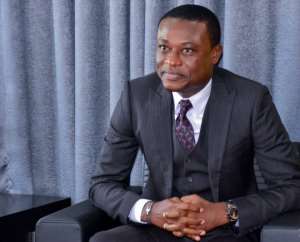
The Office of the Special Prosecutor (OSP) has defended its decision to search the premises of Strategic Mobilisation Ghana Limited (SML), insisting the action was necessary to retrieve critical documents relevant to an ongoing investigation into a controversial contract with the Ghana Revenue Authority (GRA) involving downstream petroleum revenue assurance.
The search was conducted under a court-issued warrant. According to Samuel Appiah Darko, Director of Strategy, Research and Communication at the OSP, the move followed SML’s refusal to provide requested documents voluntarily.
“Our investigators went to the SML offices for a lawful search to take possession of certain information and items which we need to help us in our investigation,” Mr. Darko explained. He was quick to clarify that no property was damaged during the operation. “We did not destroy any property and we filled the seizure notice duly signed by our officers and representatives of SML,” he said.
As part of protocol, the OSP used its standard Form 3, titled “Inventory of items seized or detained during search by an authorised officer,” to document the items collected. The form was signed by a Principal Staff Officer on behalf of the OSP and by Samuel Jacob Prempeh, Director of IT at SML, on behalf of the company, with Rev. Michael Nyamitei serving as a witness.
Mr. Darko also stated that SML staff were explicitly informed they were not under arrest, and the OSP expected their cooperation throughout the exercise. The background to the case stems from an investigative petition filed by journalist Manasseh Azure Awuni, which prompted the OSP to launch its probe. When SML’s legal team exercised their right to decline the OSP’s initial request for documents, the Special Prosecutor had no choice but to seek a search warrant from the courts.
In explaining the OSP’s position, Mr. Darko maintained that their investigation was neither politically influenced nor externally driven. “We are not motivated by any external persons, groups or influences,” he said. He added that the investigation had initially been paused out of respect for a separate audit commissioned by the President and conducted by KPMG.
The roots of the controversy trace back to December 29, 2023, when President Nana Addo Dankwa Akufo-Addo directed KPMG to conduct a comprehensive audit of the transactions between GRA and SML. The objective, according to the Presidency, was to gain a full understanding of the allegations and to inform any necessary government decisions.
On April 24, 2024, the Media Foundation for West Africa (MFWA) invoked the Right to Information Act to formally request a copy of the KPMG report. Initially, the Presidency denied the request, citing exemptions under Section 5 of the RTI Act, which protects information relating to presidential communication and cabinet deliberations.
However, in a turn toward transparency, the President later reversed the decision. On May 22, 2024, he ordered the full public release of the KPMG report, stating, “In the interest of full transparency in governance, openness, and honesty with the public, the President has decided to waive the privilege under section 5 of the RTI Act and has directed the publication of the KPMG report in full.”
This renewed public access has intensified scrutiny over the GRA-SML contract, with the OSP continuing its probe into what could potentially be a major corruption and conflict-of-interest case involving public revenue oversight.


